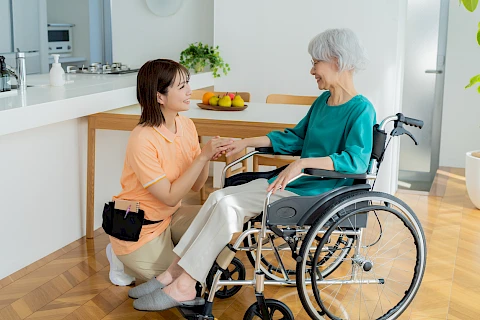
As caregivers, it's easy to focus all energy and attention on the person you are caring for. But it's equally important to remember to care for yourself too. Caregivers often experience high levels of stress, which can significantly impact their mental health. As a caregiver, however, you cannot provide adequate care for your loved one if you do not care sufficiently for yourself. Learning how to reduce stress and improve mental health can help you maintain a better quality of life for everyone.
Caregiver Stress and Burnout
Caring for a loved one can be immensely rewarding. However, it also presents unique stressors that can lead to caregiver burnout: a state of physical, emotional, and mental exhaustion. You may constantly worry about your loved one's health, juggling multiple responsibilities, or dealing with the emotional toll of seeing a loved one suffer. Over time, these stressors can have a significant impact on your mental health if they aren't addressed.
The Importance of Self-Care for Caregivers
Self-care isn't just a trendy buzzword; it's a necessary practice for maintaining our mental, emotional, and physical well-being. For caregivers, self-care is even more crucial because caregiving is demanding in all its forms. It requires energy, patience, and emotional resilience. To sustain this level of dedication to others, you need to first care for yourself.
Coping Strategies for Caregivers
Caregiving can be rewarding but highly demanding, often leading to emotional and physical strain. Coping strategies are essential for caregivers to manage stress and maintain their well-being, enabling them to provide effective support. Mindfulness, hobbies, and support groups are strategies that can be helpful in managing caregiver stress.
Practicing Mindfulness
Mindfulness is a state of being fully present and engaged with the current moment. It's about observing your feelings and thoughts without judgment. Studies have shown that mindfulness can help reduce stress and improve mental well-being. To incorporate mindfulness into your routine, try setting aside ten minutes each day to practice deep breathing or meditation. Pay close attention to your breath, the thoughts that come and go, and the different sensations in your body. Over time, you can extend this practice to other daily activities.
Engaging in Hobbies
Hobbies offer a much-needed break from the daily rigors of caregiving. They allow you to engage in something you love, stirring joy, fascination, and a sense of accomplishment. Whether it's reading, gardening, painting, or hiking, engaging in a hobby can serve as your sanctuary from stress. Don't feel guilty about setting aside a little time each day for your hobby. It's not a luxury but a necessity for mental health.
Joining Support Groups
You don't have to face the caregiving journey alone. Support groups provide a safe space for caregivers to share their experiences, learn from others, and build connections. These communities offer understanding, empathy, and valuable insights to aid your caregiving journey.
Get Respite Care or Assistance Caring for Your Senior Loved One
Being a caregiver is a significant yet demanding role. It poses unique challenges that require resilience, patience, and plenty of self-care. Incorporating mindfulness into your routine, dedicating time to your hobbies, and connecting with others in support groups are powerful strategies to maintain your mental health. Remember, your well-being is of the utmost importance, not just for you but also for the person you are caring for.
As a caregiver, you are not alone. Senior Helpers Seattle is here to help. If you live in Seattle, Bellevue, Kirkland, Redmond, or Kent and need more help caring for a senior loved one, reach out to us to learn more about our care services, including respite care, that can help you get a break when needed.